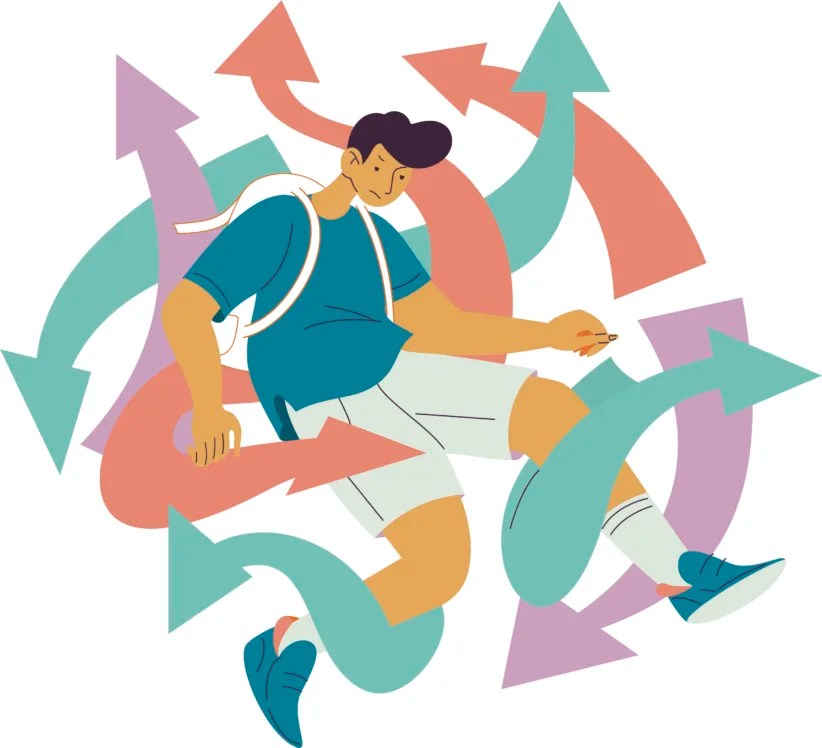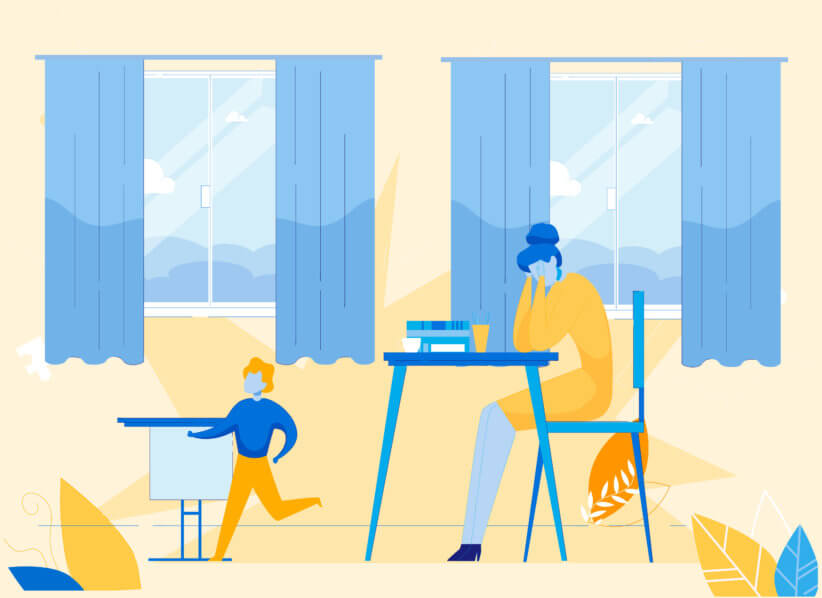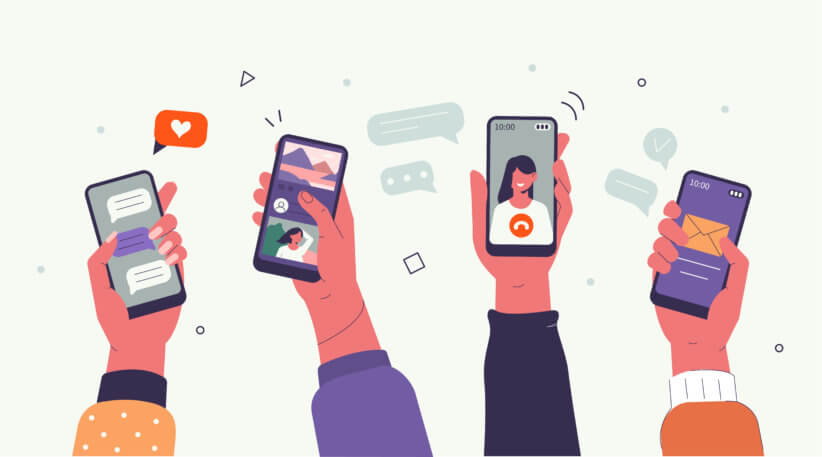
ADHD in Children (symptoms, causes and non-medicated treatment)
I think my 12-year-old daughter has ADHD, but she’s not (yet) been diagnosed. Why? Because when I finally decided to have her evaluated, after years of being on the fence about it, I was advised against “opening that can of worms” as long as none of her teachers had ever recommended it.
Can of worms? Really?
While none of her teachers ever expressly recommended an evaluation, I always heard things like “takes forever to complete classwork” and “has trouble focusing” and “gets distracted easily.”
ADHD, or Attention Deficit Hyperactivity Disorder, is described as a chronic neurological condition marked by persistent inattention, hyperactivity, and sometimes impulsivity. It is one of the most common mental conditions in children. Around 6 million children ages 3 to 17 have been diagnosed in the U.S. alone, according to the CDC.
Despite the staggering statistics, I think a lot of people – even professionals, apparently – have this stereotypical view of ADHD that it’s just an excuse for lazy or bad behavior, one many parents use to medicate their children into being good without even considering whether other treatments are available. That stigma leads a lot of parents (myself included) to assume medication is the only way to treat it, and that the medication will turn their kids to zombies anyway.
Psst…Dyslexia Early Intervention: Tips from an Expert
But if your child is showing signs of having a developmental disability like ADHD, don’t be like me and wait until they are halfway through middle school before you finally decide to take action just because a teacher never told you to. No one knows your child like you do, so if you are concerned, have them evaluated and know there are options beyond medication (and also know that medication might actualy end up being the right choice for your family).
I spoke to Dr. Rebecca Jackson, a board certified cognitive specialist, Brain Wellness Expert, and author of Back on Track: A Practical Guide to Help Kids of All Ages Thrive, which delves into developmental red flags, to learn more about ADHD, why diagnosis seem to be on the rise and what parents can do if they are concerned.

ADHD Signs & Symptoms in Children
Hyperactivity. According to Dr. Jackson, the “H” in ADHD, as in hyperactive, tends to be more noticeable in younger children. “The older your child is, the less likely you are to note the hyperactivity,” she says. “The hyperactivity component tends to be the piece that draws attention the most. It’s disruptive in the classroom, at the dinner table, on playdates. So oftentimes, the first sign or symptom that parents see is the hyperactivity impulsivity, because of all the disruptions happening.”
Inattentiveness. “What is much more easily missed is the inattentive type of ADHD,” she continues. “And that one becomes more evident the older a child gets, because with that you don’t have the loud disruptive behaviors, but you see heightened challenges with executive functions. This is going to be the child that does the homework and forgets to turn it in. And as a parent, you’re like, ‘Are you kidding me? You already did the hard work!’ You find yourself saying, ‘why didn’t you just…’ all the time. Why didn’t you just remember to bring your lunch with you in the morning? Why didn’t you just turn in your homework?”
Limited Attention Span. We all have a natural window of attention, according to Dr. Jackson, and our attention develops with age and maturity. “A two year old is only going to do a thing for two to four minutes at a time. But by the time they get to kindergarten, a child should be able to sit in the circle and participate for a longer period of time. So as a parent, if you’re not seeing your child’s natural window of attention improving over time, and if everybody else in the class is able to attend to the task long enough to complete it, but your child’s needing redirection or needing to bring it home, that is a red flag.”
Task Switching. Executive functions are our ability to achieve a goal, like turning in homework to get good grades. Individuals with ADHD have a harder time with task switching and with executive functions. “Let’s say I’m working on a project and my phone dings to tell me I have a text message. I’m going to shift my attention to my text message,” says Dr. Jackson. “Task switching should remind me to go back and finish the project that I started. But with ADHD, it’s harder task switching when the brain is not remembering to go back and finish what it started. Lots of started things don’t get completed.”
Emotional regulation. People with ADHD tend to have difficulty managing frustrations. We all have a point where we get frustrated and upset, or we cry when we’re really angry or we lose our temper. “With ADHD there’s an immaturity in some of those networks and pathways in the brain, and so the upsets can happen more frequently,” Dr. Jackson says. “They can last longer and they can be bigger. And so if you’ve got a daughter that’s really dramatic and always getting super upset with friends, that can be a red flag. Or a boy playing on the playground who gets super upset because people aren’t following directions, that can be a red flag. And again, we all have a threshold of when we lose our temper. But if it’s happening more consistently than peers that are appropriate in their development, that’s a concern.”
Causes of ADHD
So what causes ADHD? That’s the million dollar question, Dr. Jackson says. “There are a lot of different factors that can contribute to ADHD. Both genetics and environmental factors can play a part. If a child experiences trauma, abuse or neglect, it can interfere with development.
“But there’s also the times where I meet a parent with two kids, same household, same environment, same genetics, and one child is thriving while the other faces challenges with ADHD.”

Technology & ADHD
I asked Dr. Jackson if the overuse of technology is a factor in developing ADHD. “I’m not going to say that scrolling social media and gaming causes ADHD, but what I am going to say is that the individual with ADHD is going to be even more susceptible,” she says.
“When we’re spending large chunks of time, scrolling the Internet, whether we’re watching YouTube videos or Tik Tok, videos or gaming, the type of attention we’re using is heightened attention. And when you’re in that hyper focused mode, you lose awareness of time and of what’s happening around you. It’s why when you go to bed at night and say ‘I’m just going to check my phone for a minute,’ before you know it an hour passes and you’re still scrolling.
“Hyper focus is incredibly fatiguing on the brain. It makes the brain exhausted. Let’s say you’ve got an eight year old who just spent two hours on Tik Tok or watching YouTube videos or gaming. When you ask them to stop, you’re going to get tears, pushback, negative behavior. It’s not just that they don’t want to stop. It’s that we just allowed them to completely fatigue their brain and their resources. And now we’re asking them to be able to regulate their mood and emotions.
“When you watch something that you like, funny dog videos for example, there’s a dopamine release in the brain.that gives you a burst of energy.
“So when a parent asks why they can game for an hour but they can’t do 20 minutes of math, it’s because gaming is short bursts of attention strung together with a dopamine reward in the brain. When you’re doing math, there’s no dopamine reward in the brain. So our kids are exercising their reward-driven pathways, not sustained attention. The individual with ADHD is starting with a brain that’s already fatigued, so they’re going to fatigue even faster. And that dopamine is hitting them hard and so they’re going to gravitate towards those activities even more. As parents, we don’t want to ban things but be mindful of the balance. So say, ‘sure, you can spend 20 minutes online, but you’re going to get your homework done first. We shouldn’t have you gaming and fatiguing the brain before you do homework. And then we don’t want it in the hour before bed because it can disrupt the ability to fall asleep and the quality of sleep.”
ADHD Treatment
Speaking of quality of sleep, that’s one of the components to managing ADHD on a daily basis to support the level of function that you currently have. Dr. Jackson recommends making sure kids are getting adequate sleep and eating nutritious foods. “We know that sugar drives inflammation and so does highly processed food. Inflammation is like asking your brain to function with fog. What you eat matters,” she says
Medication
To medicate or not medicate, that is the question. There can be many side effects related to ADHD medication, and so naturally parents might be hesitant to try it on their child. Conversely, some parents might think medication is the easy cure-all their child needs to get back on track.
Anytime there’s medication, there’s a trade off, Dr. Jackson explains. “There are pros and cons, risks and benefits that it’s important for parents to understand. We talk to so many families that are getting pressure from teachers or from other adults in their life to medicate their child. But that is a decision solely between the parent and the physician, that should not be based on outside pressure from others.
“I don’t ever want a parent to feel guilty about a decision they make. But there’s this misnomer that we’re going to start medication and all of our problems are going to be solved. It’s difficult figuring out what’s the right medication for your child, the right dosage and combination. And what works now might not work six months from now. So it’s not always the quick, easy fix that parents think it’s going to be.
“What we know from the research is that there’s an impact on growth and development. A child that has been medicated over time might not grow to their full height. We know within the first several months of taking medication, there’s not always long term change in the grades and learning outcomes. So the studies were mixed in terms of how it helps with academics and learning. A lot of kids experience decreased appetite, so we have kids that already have immaturity and brain development, and our foods that we eat fuels the growth and development of our brains. We’ve got an immature brain and a suppressed appetite, and that worries me for the future development of that brain.”
Brain Balance
While medication can help, there are other treatment options that parents might not be aware of. Dr. Jackson is Chief Program Officer for a company called Brain Balance, which is a program that builds and strengthens networks and pathways in the brain through specific stimulation, exercises, and activities. “I always say we exercise the brain the way you use it in real life,” she says. “At Brain Balance, we’re engaging multiple different senses while a child is doing coordinated, fast, accurate eye movements with auditory processing, visual processing, body coordination, rhythm and timing, exercising and engaging as many networks and pathways as we can simultaneously. And then we engage those pathways over and over to make them stronger, faster, more efficient.”
A child does not need an official ADHD diagnosis for this kind of non-medicated treatment, either. Nearly 10% of kids in the US right now qualify for that diagnosis, but nearly 17% of kids qualify for what is called a subthreshold diagnosis, meaning they’re falling just shy of the criteria. I think this is really important because the kids can still be struggling to keep up, to pay attention and to regulate mood and emotions. With subthreshold ADHD, there’s immaturity of the brain, but maybe not quite to the extent of full ADHD, so they don’t qualify for a label or a diagnosis – and would not be prescribed medication – but that doesn’t mean that they still don’t need help and support.”
To learn more about Brain Balance, go to brainbalancecenters.com. Dr. Jackson’s book, Back on Track, is available on Amazon.

